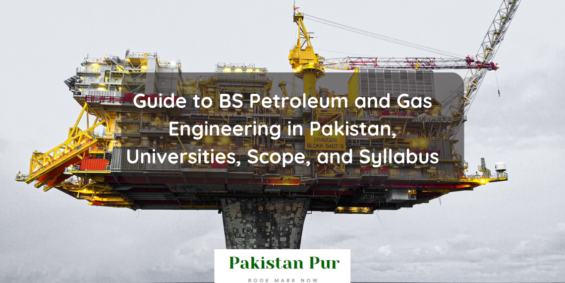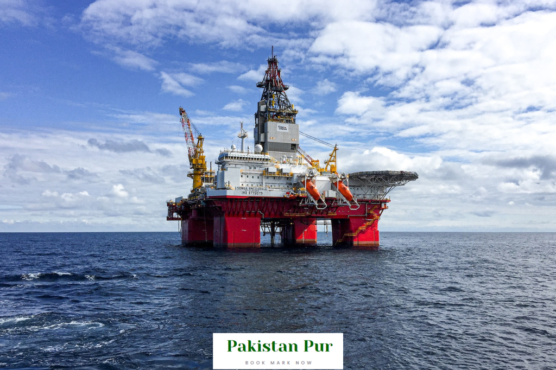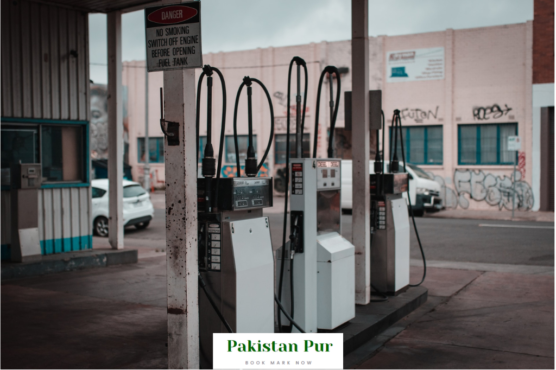
Table of Contents
Petroleum and Gas Engineering is a specialized field of engineering that focuses on the exploration, extraction, and production of oil and gas resources.
BS Petroleum and Gas Engineering in Pakistan is a comprehensive four-year program offered by several universities, such as the Mehran University of Engineering & Technology and the University of Punjab.
The program educates students in the exploration, drilling, exploitation, and development of oil and gas resources. Emphasizing skills like well-testing, logging, artificial lift techniques, and natural gas transmission, it prepares graduates for a career in the rapidly evolving oil and gas industry.
This BS Petroleum and Gas Engineering in Pakistan Guide is a part of the series on the best degrees after FSc Pre Engineering. Read the full list of degrees here.
Best Fields after FSc Pre Engineering in Pakistan
BS Petroleum and Gas Engineering Universities in Pakistan
These universities offer BS Petroleum and Gas Engineering Universities in Pakistan. Use the search function to find a university in a city.
| Institution | City | Program | Public/Private |
|---|---|---|---|
| Mehran University Of Engineering & Technology | Jamshoro | BE , 4 Years | Public |
| Dawood University Of Engineering And Technology | Karachi | BE , 4 Years | Public |
| University Of Engineering & Technology, Lahore | Lahore | B.Sc. , 4 Years | Public |
| University Of The Punjab | Lahore | B.Sc. , 4 Years | Public |
| NFC Institute Of Engineering & Technology | Multan | B.Sc. , 4 Years | Public |
| Balochistan University Of It & Management Sciences | Quetta | B.Sc. , 4 Years | Public |
| University Of Chakwal | Chakwal | BS , 4 Years | Public |

Read this guide to understand the scope of BS Petroleum and gas engineering in Pakistan and salary for the petroleum and gas engineering graduates.
Guide To BS Petroleum And Gas Engineering In Pakistan
BS Petroleum and Gas Engineering Syllabus and Subjects
The major subjects and syllabus for a BS Petroleum and Gas Engineering degree program in Pakistan include:
- Applied Mathematics: This subject forms the backbone of engineering principles, providing the mathematical skills needed to solve complex problems.
- Engineering Thermodynamics: This course deals with energy conversion and the laws governing these processes, which is crucial in petroleum and gas engineering.
- Mechanical Engineering: Basic mechanical concepts are taught that apply to the design and maintenance of machinery used in the industry.
- Geology for Petroleum Engineers: This subject provides an understanding of earth’s subsurface structures, essential for finding and extracting petroleum and gas reserves.
- Drilling Engineering: This subject covers the techniques and equipment used in drilling operations.
- Production Engineering: This involves the study of bringing hydrocarbons to the surface and preparing them for the market.
- Reservoir Engineering: It involves the assessment and prediction of oil and gas reservoir performance.
- Reservoir Fluid Properties: Understanding these properties is critical for maximizing extraction.
- Artificial Lift Methods: This subject covers the techniques used to increase the flow of liquids from the reservoirs.
- Enhanced Oil Recovery: This topic covers methods to increase the amount of crude oil that can be extracted from an oil field.
These subjects are designed to equip students with the necessary skills and knowledge to meet the demands of the petroleum and gas industry.
BS Petroleum and Gas Engineering Syllabus by HEC
HEC has developed a syllabus for BS Petroleum and Gas Engineering with the cooperation of PEC. Here is the syllabus for each semester.
You can read the full document for BS Petroleum and Gas Engineering Syllabus by HEC.
BS Petroleum and Gas Engineering: Semester 1 Subjects
- Fundamentals of Petroleum Engineering
- Applied Geology
- Islamic Studies / Ethics
- Calculus
- Applied Physics
- Functional English
- Workshop Practice
BS Petroleum and Gas Engineering: Semester 2 Subjects
- Communication Skills
- Pakistan Studies
- Differential Equation
- Applied Chemistry
- Engineering Drawing
- Computer Programming and Application Software
BS Petroleum and Gas Engineering: Semester 3 Subjects
- Technical Writing and Presentation Skills
- Complex Variables and Linear Transform
- Fluid Mechanics
- Principles of Electrical Engineering
- Petroleum Geology and Geophysical Exploration
- Applied Thermodynamics
BS Petroleum and Gas Engineering: Semester 4 Subjects
- Principles of Corrosion Control / Unconventional Reservoirs / Probability and Statistics / Surveying & Levelling
- Mechanics of Materials
- Drilling Engineering-I
- Petrophysics
- Social Sciences
BS Petroleum and Gas Engineering: Semester 5 Subjects
- Applied Numerical Methods
- Properties of Reservoir Fluids
- Drilling Engineering-II
- Environment and Safety Management
- Instrumentation and Process Control
BS Petroleum and Gas Engineering: Semester 6 Subjects
- Reservoir Geomechanics
- Well Logging
- Reservoir Engineering – I
- Petroleum ProductionEngineering-I
- Petroleum RefineryEngineering
BS Petroleum and Gas Engineering: Semester 7 Subjects
- Natural Gas Engineering
- Project Planning and Management
- Well Testing
- Petroleum production engineering-II
- Reservoir Simulation
- Final Year Project
BS Petroleum and Gas Engineering: Semester 8 Subjects
- Final Year Project
- Petroleum Economics
- Principles of Enhanced Oil Recovery
- Reservoir Engineering – II
BS Petroleum and Gas Engineering Admission Eligibility Criteria
The admission process for a BS degree in Petroleum and Gas Engineering in Pakistan involves specific eligibility criteria that vary across universities. However, some common requirements exist.
Educational Qualifications
Candidates must have completed F.Sc (Pre-Engineering) or its equivalent from a recognized board with a minimum score ranging between 50% to 60%.
Entry Test
Prospective students are required to pass an entry test. For instance, the ECAT exam is one such prerequisite for certain institutions.
Additional Requirements
An applicant’s year of passing the examination should not be earlier than two years at the time of admission.
It’s important to note that each university may have its own specific requirements. Therefore, candidates are advised to check the eligibility criteria detailed on the respective university’s official website or admission guide.
In conclusion, gaining admission into a BS Petroleum and Gas Engineering program in Pakistan requires substantial preparation and meeting specific eligibility criteria. It is a competitive process, but with the right academic qualifications and preparation for the entry tests, it is achievable.

FAQs
What is petroleum and gas engineering?
Petroleum and Gas Engineering is a specialized field of engineering that focuses on the exploration, extraction, and production of oil and gas. This discipline:
Leverages advanced technology for efficient extraction.
Ensures minimal environmental impact.
Compares favorably with other engineering fields due to high demand and lucrative salaries.
Choose Petroleum and Gas Engineering for a rewarding career in the energy sector.
Leave a Reply